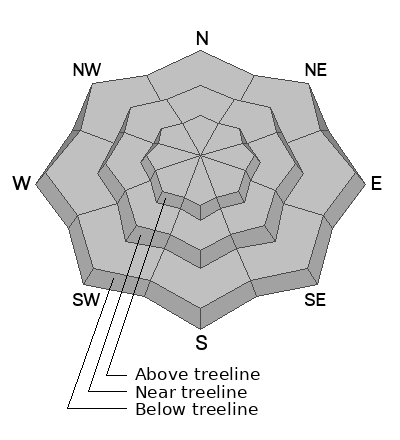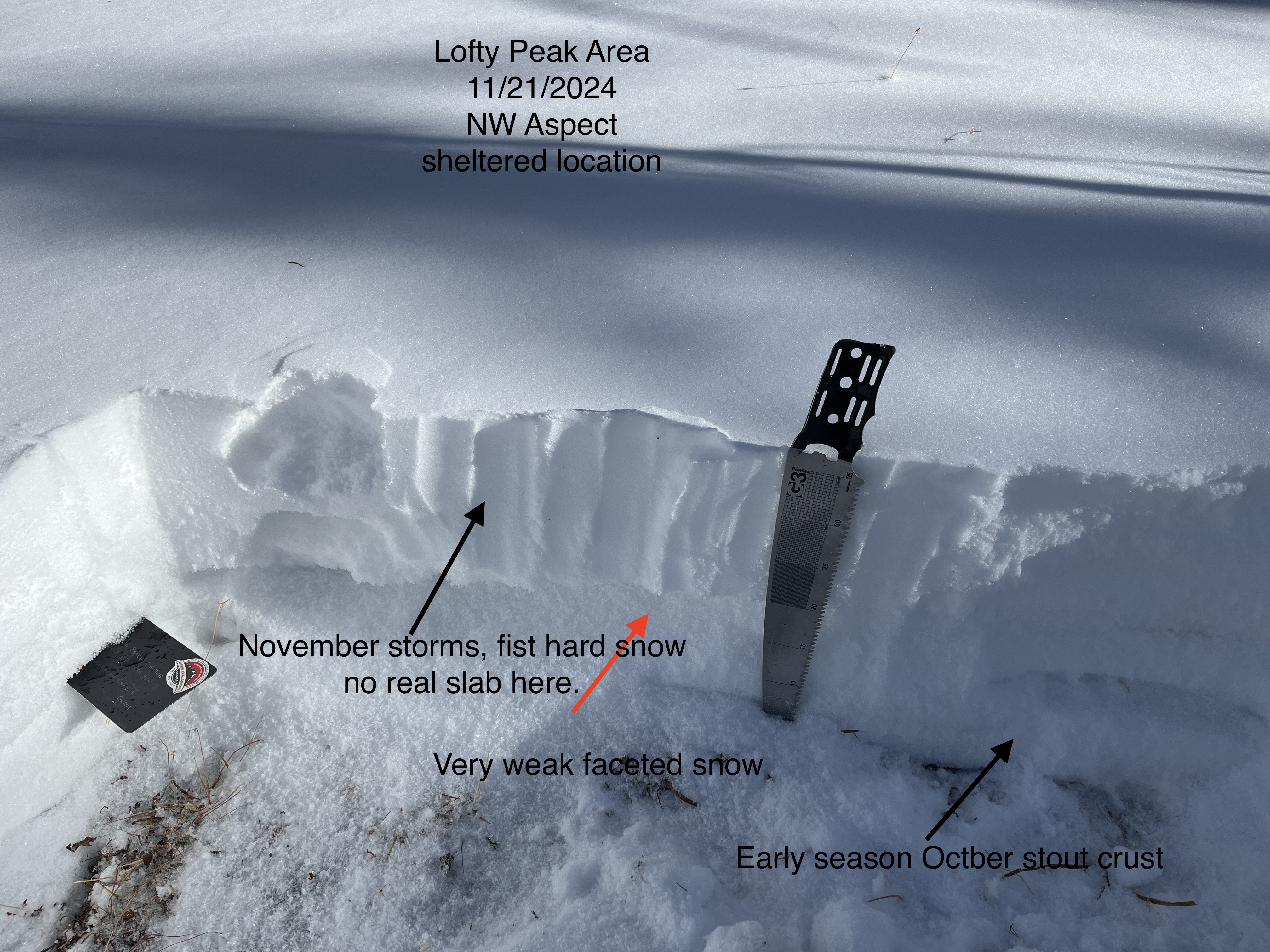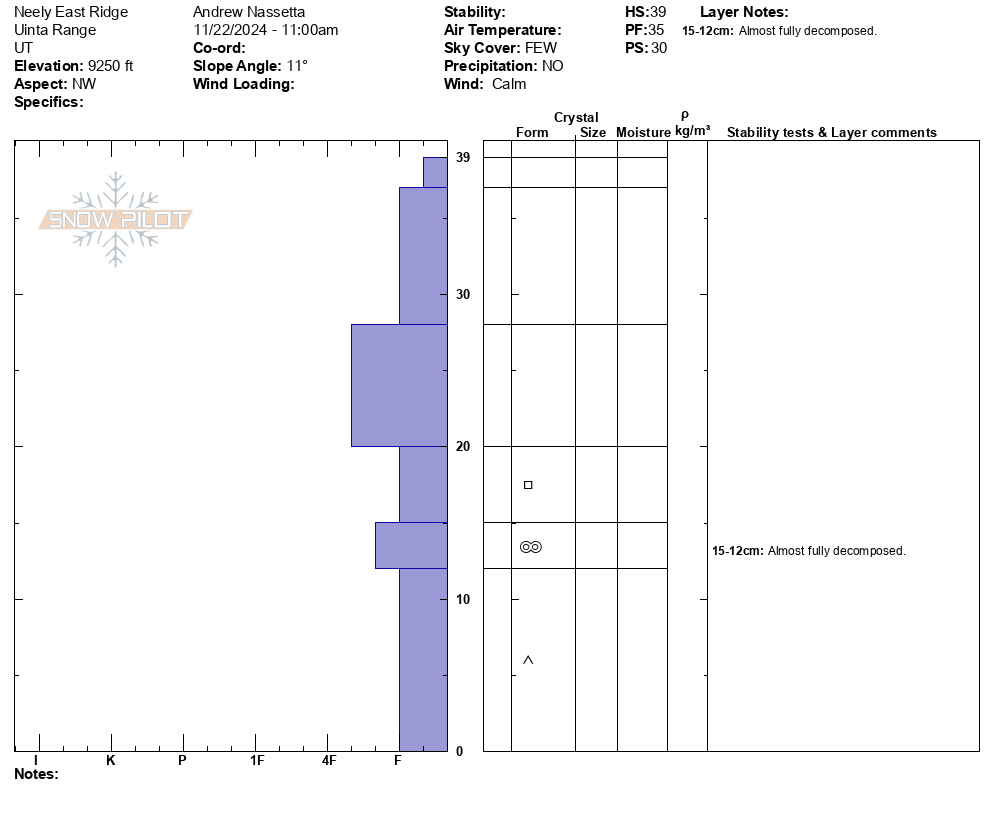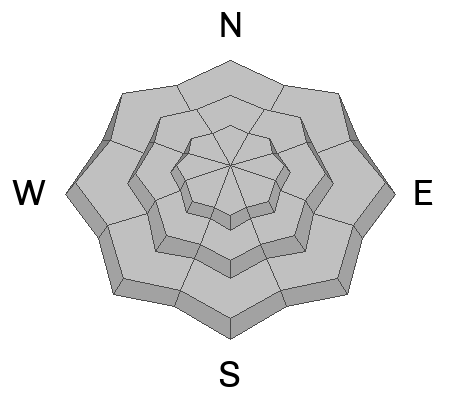Forecast for the Uintas Area Mountains

Issued by Andrew Nassetta on
Friday morning, November 22, 2024
Friday morning, November 22, 2024
Updated Friday, November 22nd at 04:00 PM
The snowpack is still very thin and the main game in the Uinta’s is avoiding rocks, stumps, and lumps barely hidden beneath the snow surface. If you're looking in the right place, you may be able to find a small lingering wind-drift in upper elevation terrain. Although small in size, even a little piece of moving snow could knock you off your feet and lead to a nasty ride.

Low
Moderate
Considerable
High
Extreme
Learn how to read the forecast here






